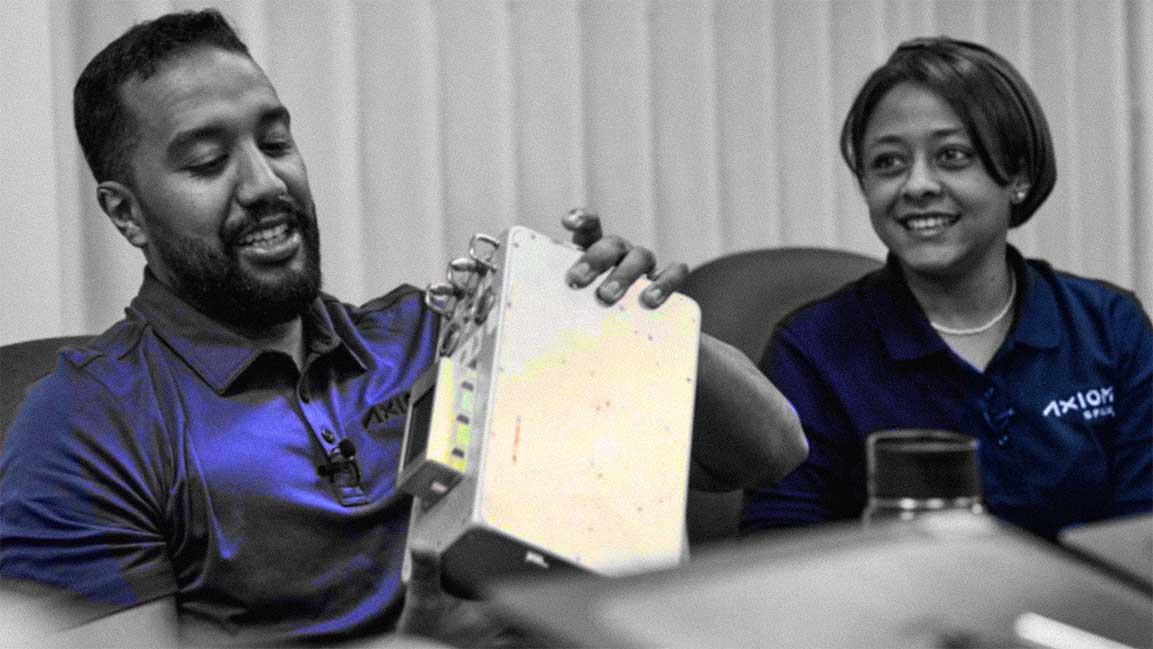- | 1:00 pm
From human research to artificial rain: Saudi astronauts to carry out experiments in space
The experiments include looking into the impact of being in space and studying human immune cells' inflammatory response in microgravity.

From human research and cell science to artificial rain in microgravity, almost a dozen research experiments will be conducted by Saudi astronauts Rayyanah Barnawi and Ali Alqarni.
As part of the mission to the International Space Station (ISS), the Saudi astronauts and two American colleagues are scheduled to launch from the Kennedy Space Center in Florida on May 12, 2023, for a ten-day mission.
The artificial rain experiment involves water vapor that will be condensed on plankton and salt atoms in microgravity to stimulate the cloud-seeding process used in Saudi Arabia and other countries to increase precipitation rates.
Led by Dr. Ashraf Farahat, the experiment is for the King Fahd University of Petroleum and Minerals. It will enable scientists and researchers to develop new suitable conditions for humans –such as the stimulation of artificial rain- to live in space colonies on the surface of the Moon and Mars. It will also contribute to researchers’ understanding of rain-seeding technology and increase rainfall in many countries.
The astronauts will also conduct six experiments to look into the impact of being in space on human health, led by Dr. Bader Shirah of Saudi’s Nebula Research and Development. It will utilize neuroscience tools, such as measuring blood flow to the brain and the brain’s electrical activity, assessing intracranial pressure with a non-invasive assessment of the pupil, and monitoring changes in the optic nerve. The results would be used to make spaceflight safer in the future.
Another notable experiment: the Saudi astronauts will study the inflammatory response of human immune cells in microgravity for the King Faisal Specialist Hospital and Research Center (KFSHRC). By doing so, the Saudi Space Commission (SSC) said that the results could contribute to understanding health in space and uncover biomarkers and potential therapies for inflammatory diseases in space and on Earth.
Besides the experiments, school pupils and university students will also get involved. Experiments will be conducted aboard the ISS in real-time with students across Saudi, in collaboration with the Ministry of Education, Mawhiba, Riyadh Schools, and Misk Schools. By doing it simultaneously, the SCC hopes to offer students a first-hand look at how the experiments’ real-time effects.
Another indication of the Middle East’s ambitions in space is Saudi Arabia’s and UAE’s plan to invest in a multi-billion-dollar funding round for Elon Musk’s SpaceX. The Information reported that Saudi Arabia’s Water and Electricity Holding Company and the UAE’s Alpha Dubai are part of the funding round, which is expected to value the company at about $140 billion.
































